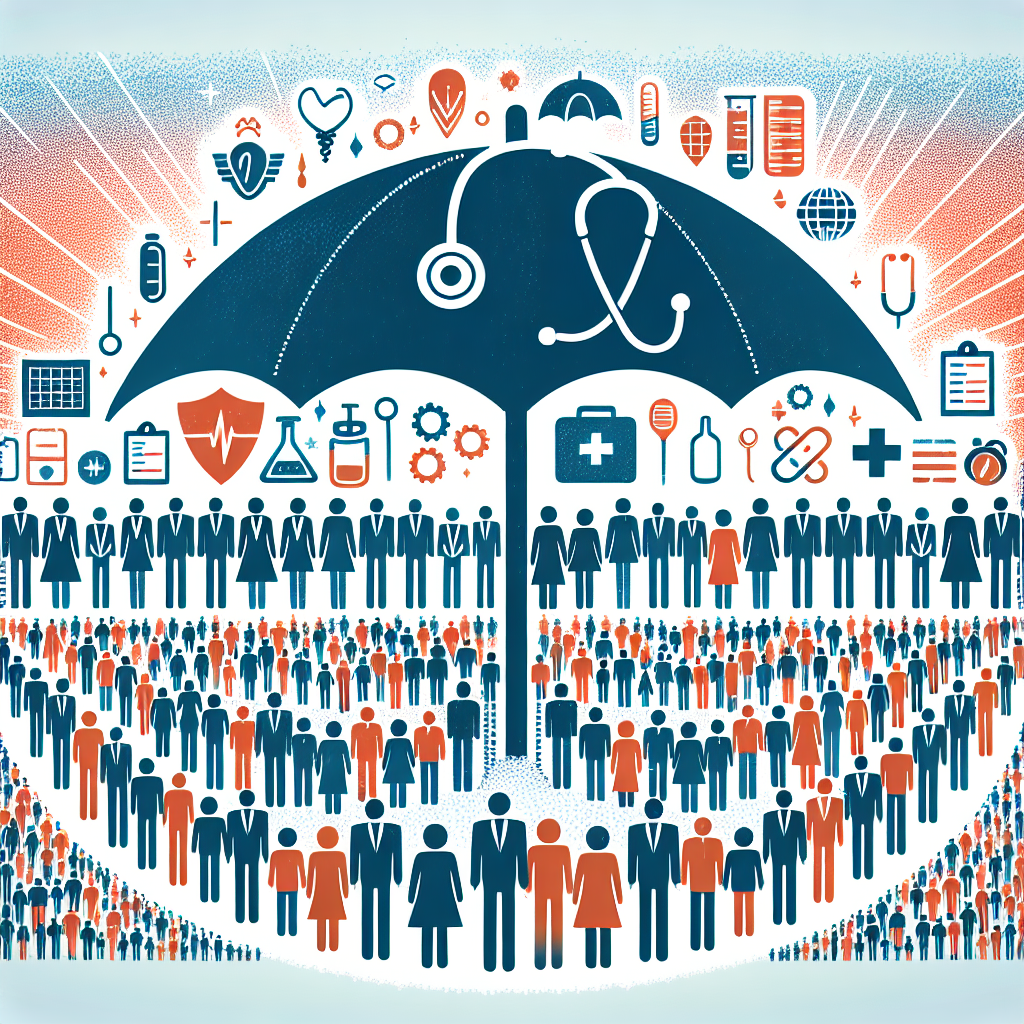Filed under Health Insurance on
Understanding Millennials and Their Health Insurance Needs

Millennials, often described as the most diverse and technologically savvy generation, have unique perspectives and needs when it comes to health insurance. As digital natives, they have redefined consumer expectations across industries, including healthcare. Understanding millennials and their health insurance needs is crucial for insurers aiming to engage this crucial demographic effectively.
Defining Millennials: A Diverse and Impactful Generation
Born between the early 1980s and mid-1990s to early 2000s, millennials are a diverse group shaping today's social, economic, and cultural landscapes. As the largest generation in the workforce, their approach to healthcare is influenced by financial constraints, technological affinity, and value-driven choices.
Financial Considerations: The Strain of Student Debt
A significant factor influencing millennials and their health insurance choices is student debt. With many balancing hefty loan repayments and relatively lower wages compared to previous generations at similar stages, cost-effectiveness in healthcare is critical. This economic pressure often leads millennials to value insurance plans that offer the best coverage with minimal out-of-pocket expenses.
Tech-Savvy Consumers: Embracing Digital Solutions
Millennials' comfort with technology also plays a pivotal role in their healthcare expectations. They seek health insurance solutions that offer digital accessibility, from online account management to telehealth options. This generation leans towards insurers with robust mobile platforms that allow easy access to benefits information, claims processes, and customer service.
Prioritizing Mental Health: A Shift in Healthcare Focus
Unlike previous generations, millennials emphasize mental health as a critical wellness component. They advocate for insurance plans that offer extensive mental health coverage, including therapy and counseling services. Recent studies support this trend, showing an increase in millennials seeking mental health support compared to older generations.
The Role of Preventive Care in Millennial Health Insurance Choices
Preventive care is another focal point for millennials when selecting health insurance. Understanding the importance of long-term health sustainability, they prefer plans that eliminate or reduce costs for preventive services such as screenings and vaccinations. Insurers prioritizing comprehensive preventive care options often emerge as preferred choices among this demographic.
Navigating the Health Insurance Marketplace
To engage millennials, insurance providers must consider how this generation researches and selects health insurance. With information literally at their fingertips, millennials exhibit a tendency to conduct thorough online research, comparing plans, and reading reviews before making decisions. Transparency in pricing and benefits becomes a critical selling point.
Price Transparency and Customizable Plans
Insurers can better cater to millennials by offering transparent pricing and customizable plans. Millennials relate better to a breakdown of costs, understanding what they're paying for and why. Additionally, the ability to tailor plans to their specific needs—be it dental, vision, or maternity care—appeals to their desire for personalized healthcare solutions.
Educational Resources: Empowering Decision-Making
Educational resources that demystify health insurance jargon empower millennials in their decision-making processes. Detailed guides on selecting the right plan, understanding coverage terms, and maximizing benefits are invaluable tools that can bolster an insurer's appeal to knowledgeable millennial consumers.
The Impact of Social Media and Influencers
The millennial pursuit of health insurance information often intersects with social media usage. Influencers and social media platforms play an increasing role in shaping perceptions and decisions. Insurers that engage with potential clients through these channels, offering relatable stories, success journeys, and user experiences, can foster stronger connections with millennial audiences.
The Future of Millennial-Centric Health Insurance
Understanding millennials and their health insurance needs isn't a static endeavor. As this generation matures and priorities shift, insurers must remain agile, continuously adapting to emerging trends and technologies. Focusing on sustainability, affordability, and comprehensive wellness will ensure long-term appeal and loyalty among millennial policyholders.
Embracing Alternative Health Solutions
An emerging trend is millennials' openness to alternative healthcare solutions, such as holistic medicine, acupuncture, and wellness programs. Insurers offering partnerships or discounts for these services can differentiate themselves as forward-thinking and inclusive of diverse health management preferences.
Leveraging Big Data and AI for Personalized Offerings
Through big data and AI, insurers can garner insights into millennial behaviors and preferences, allowing for hyper-personalized plan offerings. Tailoring insurance packages using these technologies not only enhances customer satisfaction but also aligns with millennials' expectations of personalized, tech-driven experiences.
Conclusion: Meeting the Healthcare Needs of an Influential Generation
Understanding millennials and their health insurance needs requires a deep appreciation of their values, economic constraints, and technological expectations. Insurers that leverage digital innovation, prioritize mental health, offer transparency, and engage through social media are well-positioned to capture the loyalty of this dynamic group. As millennials' influence grows, so does the opportunity for insurers to craft innovative solutions that resonate, ensuring sustainable success in the evolving healthcare landscape.





